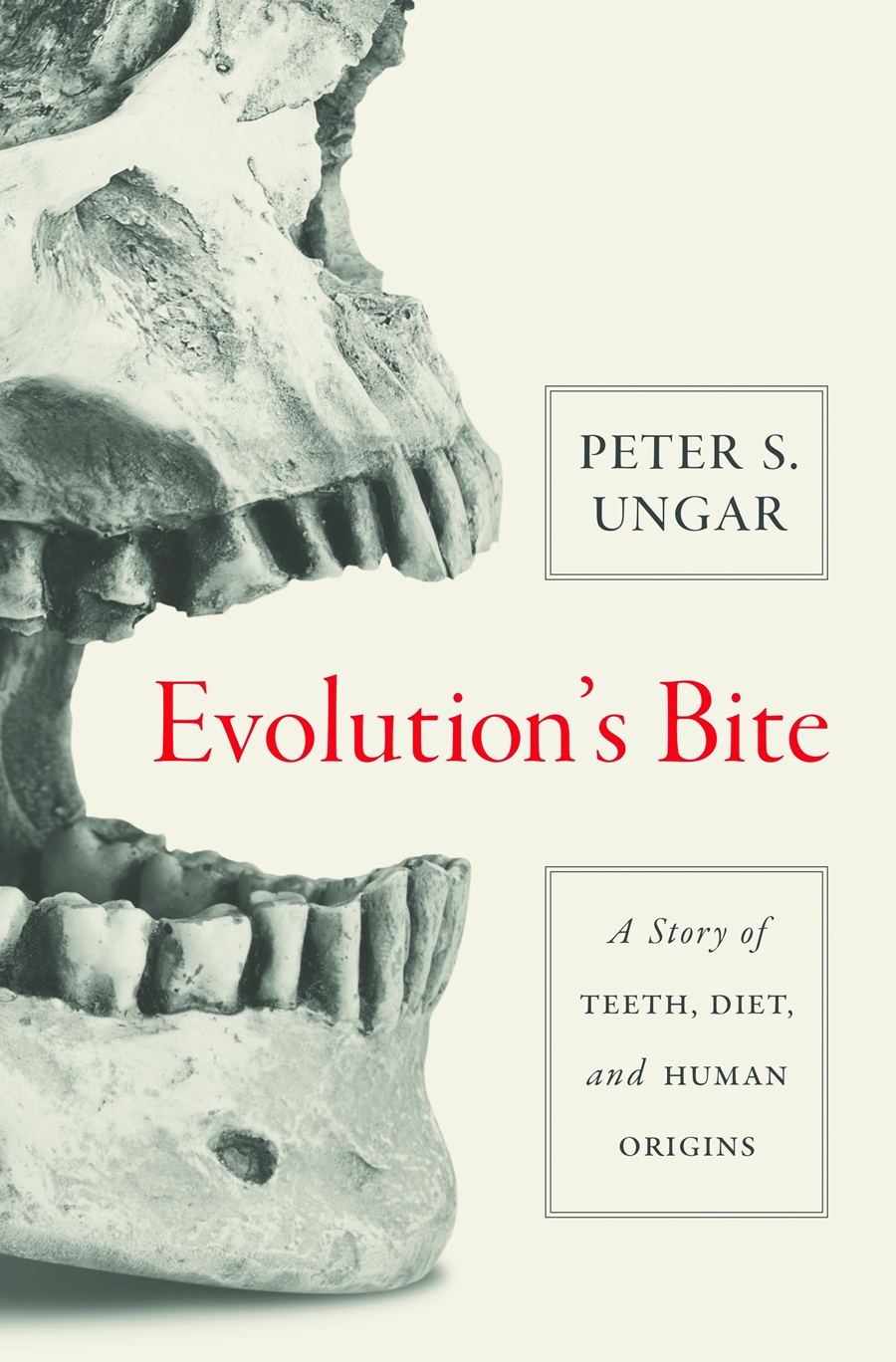
FAYETTEVILLE, Ark. — Evolution’s Bite by Peter Ungar, Distinguished Professor of anthropology and director of the Environmental Dynamics program at the University of Arkansas, will be released in May by Princeton University Press.
Advance issues of the book have already received critical acclaim.
The National Science Teachers Association’s NSTA Recommends describes the book as “about as close to a tour de force as a science book is likely to get.”
Evolution’s Bite spans the globe, combining scientific breakthroughs with vivid narrative to present a unique perspective on our human journey — by comparing today’s human teeth to those of our ancestors to teach us how we became human. Ungar also brings together cutting-edge advances in the study of human evolution and climate change as well as new approaches to uncovering dietary clues based on fossil teeth.
Ungar describes how a tooth's "foodprints" — distinctive patterns of microscopic wear and tear — provide telltale details about what its owner actually ate in the past. These clues, combined with groundbreaking research in paleoclimatology, show how a changing climate altered the food options available to human ancestors. When the diet changed, the species changed, and Ungar traces how that diet and an unpredictable climate determined who among our ancestors was winnowed out and who survived. He also shows why some ancestors transitioned from the role of foragers to farmers. Finally, by sifting through the evidence — and the scars left on teeth — Ungar makes the important case for what might or might not be the most natural diet for humans.
Pre-release events have nearly sold out, with lines for Ungar’s autograph lasting an hour.
His related blog post, “The True Human Diet,” published last week on the Scientific American website, garnered thousands of likes and shares on social media within 24 hours. “I seem to have struck a chord,” Ungar said.
Ann Gibbons, author of The First Human: The Race to Discover Our Earliest Ancestors, recommends Evolution’s Bite for “anyone who wants to know where we came from and how we ended up with such messed up teeth and jaws." Rick Potts, director of the Human Origins Program in the Smithsonian Institution, called the book a “compelling tale” that “shows how the union of scientific fields shapes the profound story of food, diet and evolution."
Ungar said that he hopes that, in reading the book, “when people smile and look in a mirror, they will be reminded that their teeth are a legacy of our evolution — one that connects us all to our distant ancestors and to each other.”
Peter S. Ungar is Distinguished Professor of anthropology and director of the Environmental Dynamics Program at the University of Arkansas. He researches the diets of modern primates, early hominins and the mammals coexisting with them. He is author or co-author of more than 130 scientific papers and
author of Teeth: A Very Short Introduction and Mammal Teeth: Origin, Evolution, and Diversity and the editor of Evolution of the Human Diet: The Known, the Unknown, and the Unknowable.
About the University of Arkansas: The University of Arkansas provides an internationally competitive education for undergraduate and graduate students in more than 200 academic programs. The university contributes new knowledge, economic development, basic and applied research, and creative activity while also providing service to academic and professional disciplines. The Carnegie Foundation classifies the University of Arkansas among only 2 percent of universities in America that have the highest level of research activity. U.S. News & World Report ranks the University of Arkansas among its top American public research universities. Founded in 1871, the University of Arkansas comprises 10 colleges and schools and maintains a low student-to-faculty ratio that promotes personal attention and close mentoring.
Topics
Contacts
Peter Ungar, Distinguished Professor, anthropology
J. William Fulbright College of Arts and Sciences
479-575-6361, pungar@uark.edu
DeLani Bartlette, writer
University Relations
479-575-5709, drbartl@uark.edu